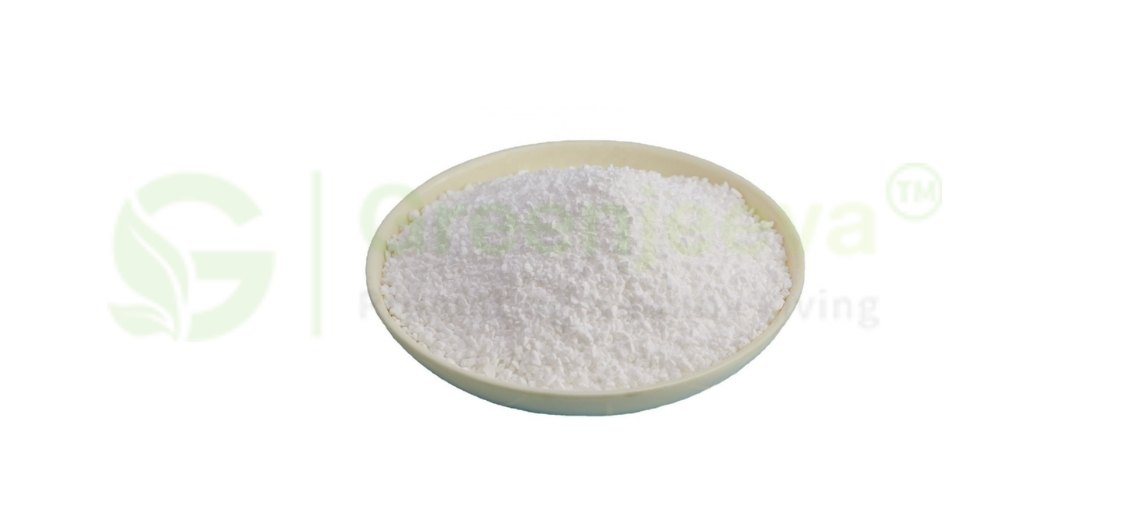Calcium Gluconate vs. Other Calcium Salts: Choosing the Right Salt

Calcium, the cornerstone of strong bones and teeth, plays a vital role in various bodily functions. In the ever-evolving world of nutraceuticals and food science, incorporating calcium salts into formulations is widespread. But with a variety of calcium options available, selecting the right one for your specific application is crucial. Today, we delve into the differences between calcium gluconate and other popular calcium salts, helping you make an informed decision.
Calcium Gluconate: A Quick Look
Calcium gluconate, a salt of gluconic acid, is a readily available and versatile source of calcium. Here's a breakdown of its key characteristics:
Solubility: Calcium gluconate is moderately soluble in water, making it a good choice for oral and injectable applications.
Bioavailability: The body readily absorbs calcium gluconate, offering quick availability of calcium ions.
Applications: Calcium gluconate finds use in various applications, including:
•Dietary supplements for calcium deficiency and health support.
•Food fortification to enhance the calcium content of processed foods.
•Injectable solutions for treating various health issues.
The Calcium Salt Landscape:
While calcium gluconate offers numerous advantages, other calcium salts present distinct properties, making them suitable for specific applications. Let's explore some popular contenders:
Calcium Carbonate:
• Key Feature: The most abundant and inexpensive source of elemental calcium.
• Considerations: Less soluble in water and requires stomach acid for optimal absorption, potentially limiting bioavailability for some individuals.
Calcium Citrate:
• Key Feature: More soluble than carbonate and offers better absorption.
• Considerations: It may have a slightly higher cost compared to calcium carbonate.
Calcium Lactate:
• Key Feature: Another readily absorbed form, often preferred for its gentle nature.
• Considerations: It may be less readily available and slightly more expensive than other options.

Choosing the Right Calcium Salt:
Selecting the ideal calcium salt boils down to a careful evaluation of your application's specific needs. Here are some key factors to consider:
• Bioavailability: Prioritize salts with high bioavailability for optimal calcium absorption, especially for therapeutic applications or individuals with digestive concerns.
• Solubility: Choose a form that readily dissolves in your chosen medium, whether it's water for beverages or a carrier for supplements.
• Cost: Consider the cost-effectiveness of each option while ensuring it aligns with your product's overall price point.
• Taste and Texture: For oral applications, palatability is crucial. Calcium gluconate may have a slightly bitter taste, while others, like calcium citrate, maybe more neutral.
• Application: Tailor your choice to the intended use. For example, injectable solutions require a sterile, readily soluble form like calcium gluconate.
The Power of Partnership:
Navigating the world of calcium salts can be complex. Partnering with a reputable supplier who offers a diverse range of calcium options and possesses in-depth application knowledge is invaluable. They can help you:
• Evaluate your specific needs: Discuss your application's unique requirements and identify the most suitable calcium salt.
• Source high-quality ingredients: Ensure consistent quality and purity of the chosen calcium salt for optimal product performance.
• Navigate regulatory considerations: Stay updated on regulatory guidelines regarding calcium salts in your target markets.
Also Read: https://www.greenjeeva.com/blog/the-top-10-fiber-supplements-for-health-conscious-customers
The Final Word: Calcium gluconate
By understanding the distinct characteristics of and other calcium salts, you can make informed decisions for your product development needs. Remember, the right choice depends on your specific application. Consulting with experts and leveraging the knowledge of a reliable supplier can empower you to unlock the full potential of calcium in your formulations. With the right approach, you can create products that effectively address calcium deficiencies and contribute to overall health and well-being.
For customers looking for organic and conventional raw ingredients with same-day shipping in and around Canada, visit Green Jeeva Canada.
Know our Calcium Ingredients- Calcium Ascorbate Powder, Calcium Carbonate Granular Dc, Calcium Carbonate Granular,(Dc95), Calcium Carbonate Powder, Calcium Citrate Powder, Calcium D-Glucarate Powder, Calcium D-Gluconate Granular, DC Grade, Calcium Phosphate Powder
**The Food and Drug Administration has not evaluated these statements. This product is not intended to diagnose, treat, cure, or prevent any disease.**






